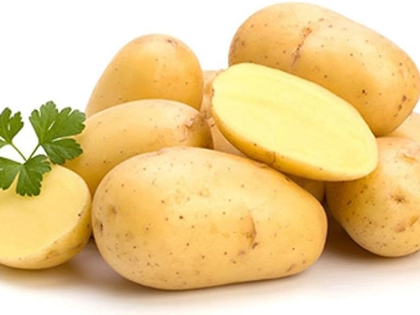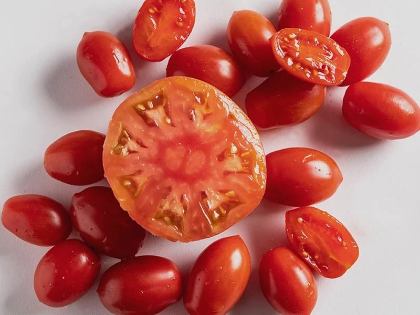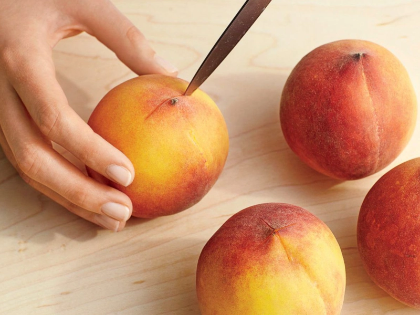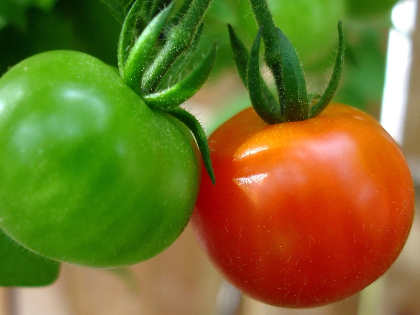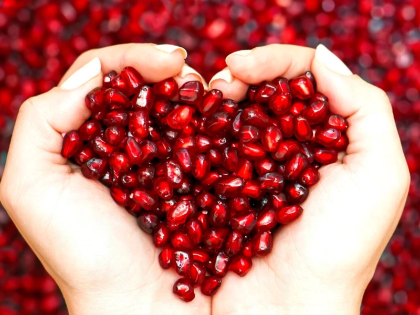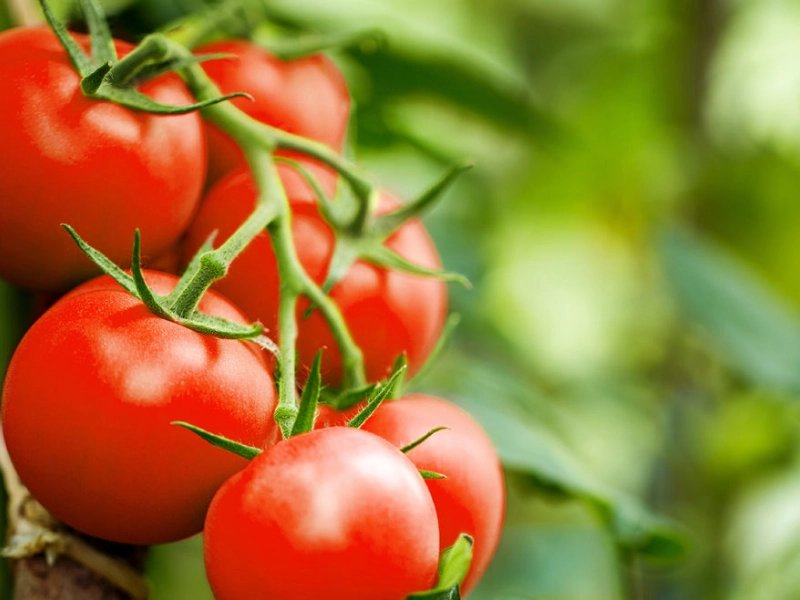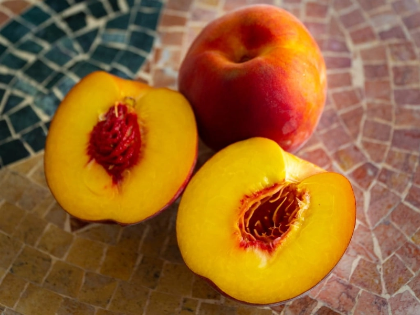With only 60 calories per cup, the fuzzy stone fruits offer a wealth of nutrients, from fibre to antioxidants. A serving of peaches contains 6% to 9% of the daily recommended fibre intake, assisting in bowel health promotion and easing constipation.
They also include potassium, a nutrient that promotes kidney and heart health. One medium peach's worth of vitamin C is a crucial antioxidant for the immune system.
1. Vitamin C-rich
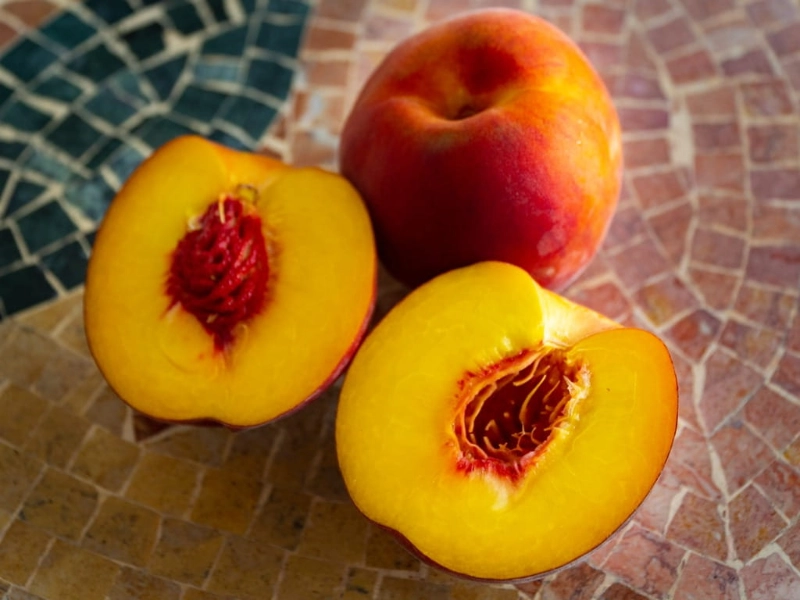
Advertisement
A fresh, fuzzy peach is a great way to obtain your daily requirement of vitamin C, whether you eat them whole, sliced, in salsa, on top of grilled fish or chicken, or combine them into a nutrient-rich smoothie. One medium peach provides 11% of the recommended daily intake of this vital nutrient, which supports recovery and keeps your immune system robust.
They are also a good source of potassium, which aids in controlling fluid balance and lowering blood pressure. 285 mg of potassium, or about 11% of the daily allowance for most adult women, may be found in one medium peach.
Additionally, those lovely skins and juicy flesh are loaded with anti-cancer elements like lutein, an antioxidant that shields your eyes from light-related damage, caffeic acid, and carotenoids, which have been shown in studies to slow the growth of breast cancer cells (10).
2. Potassium-rich
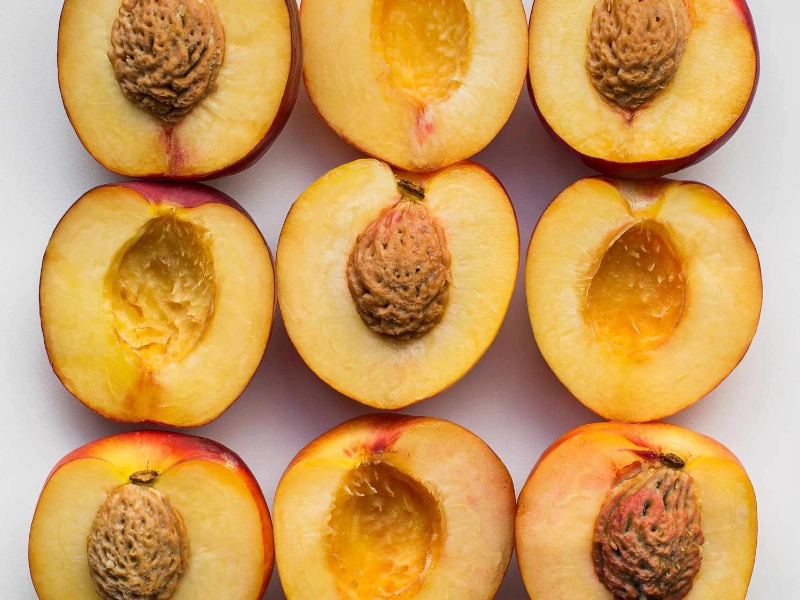
The best way to ensure that your body gets all the potassium it needs is by eating a balanced diet rich in fruits, vegetables, whole grains, lean protein, and healthy fats. 285 milligrammes of the mineral, which reduces blood pressure and lessens the risk of kidney stones and bone loss, are present in one medium peach.
The flavonoid polyphenolic antioxidants in peaches and other stone fruits, such as nectarines, promote good health by acting as scavengers of oxygen-derived free radicals, which are linked to inflammation, ageing, and disease. They also include lutein and zeaxanthin, which are plant pigments that may lower the risk of eye conditions like age-related macular degeneration.
According to a study, the phenolic chemicals in peaches may support a healthy immune system and prevent tumour formation. They include a modest amount of beta-carotene, which the body transforms into vitamin A, which is essential for maintaining healthy skin and eyes.
3. Fibre-rich
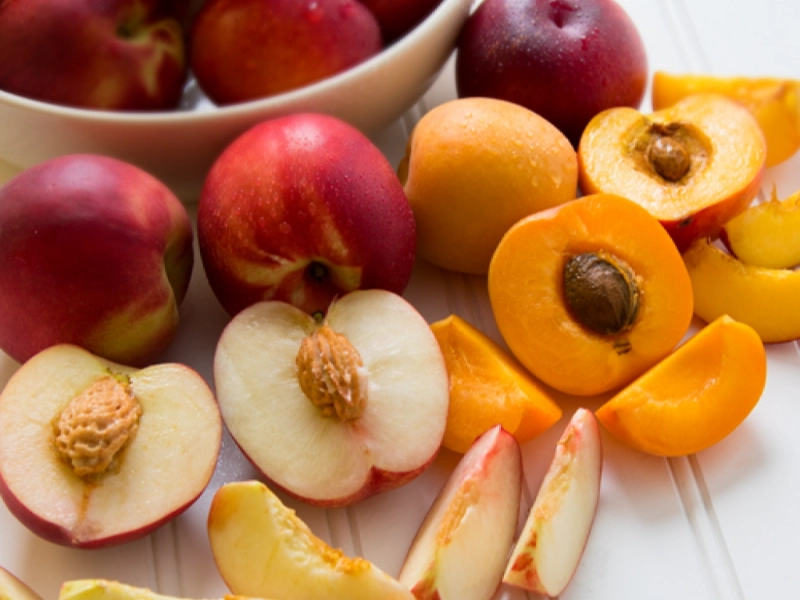
Fresh, frozen, or canned peaches all provide a convenient, natural supply of good fibre. One large peach really contains roughly 3 grammes of dietary fibre, which aids in meeting your daily needs for this significant vitamin.
Peach fibre is good for the digestive system and helps lower cholesterol levels. Potassium, another vitamin that supports heart health, is another one that is abundant in peaches.
Getting the nutrients you require requires eating a variety of fruits and vegetables. To salads, yoghurt bowls, and sandwiches, try adding chopped or sliced peaches. As an alternative, you may make a smoothie out of them for a delicious breakfast drink.
4. High antioxidant content
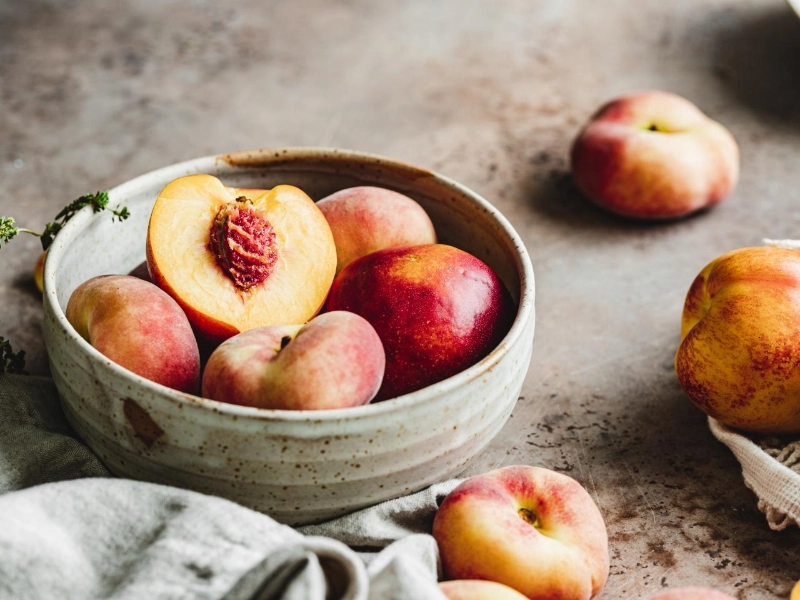
Peaches and other stone fruits, including nectarines, contain antioxidants that fight disease and advance general health. For example, peaches' lutein and zeaxanthin can protect against eye conditions, including age-related macular degeneration.
A cup of diced peaches has 6% of the daily required potassium consumption, which lowers blood pressure. Your risk of hypertension, heart disease, and stroke increases if you consume a diet that is rich in salt and low in potassium.
Peaches are in season now, so take advantage of them by eating them fresh or adding them to salads, grain bowls, and muesli. Avoid peeling them, though, as the skin contains plenty of nutrients. Try mixing mixed slices of peach in your iced tea or lemonade if you don't want to eat the entire fruit.
5. Vitamin A-rich

The vitamin A found in peaches, which is essential for skin repair and cell growth, is one of their finest health advantages. Additionally, it helps keep your immune system and vision in good shape. Lutein and zeaxanthin, two carotenoids that help maintain your eye health by blocking blue light to avoid eye damage, are abundant in peaches. They also protect against macular degeneration brought on by ageing.
The stone fruit family, which also contains plums, apricots, and cherries, also includes peaches, which offer a healthy amount of potassium. Potassium can counteract the negative effects of excess sodium by lowering blood pressure, kidney stone risk, and heart disease risk. It might even strengthen your defences and lessen allergy symptoms. (24). Peaches are a good source of dietary fibre.






